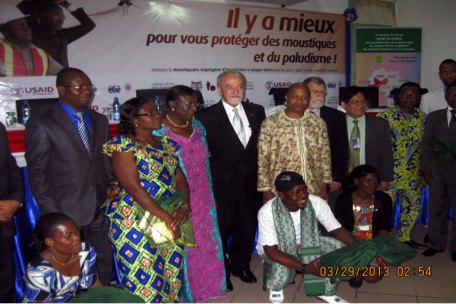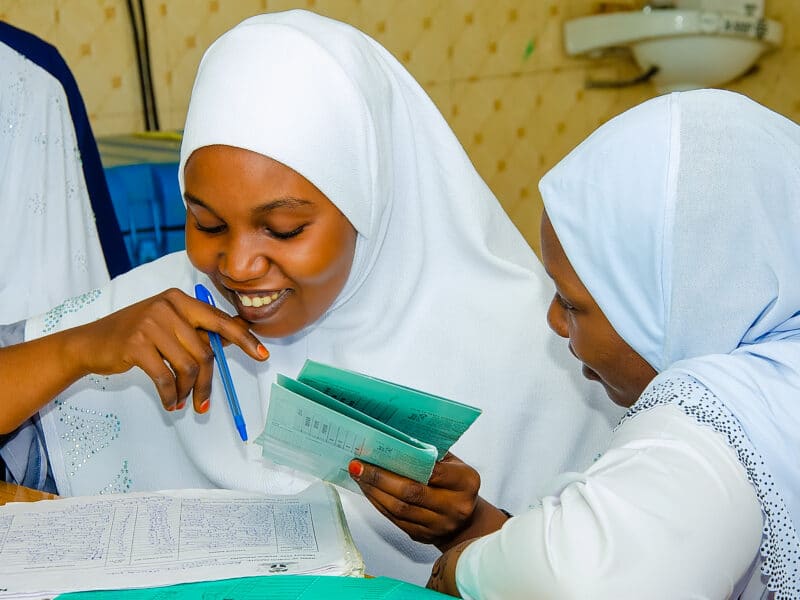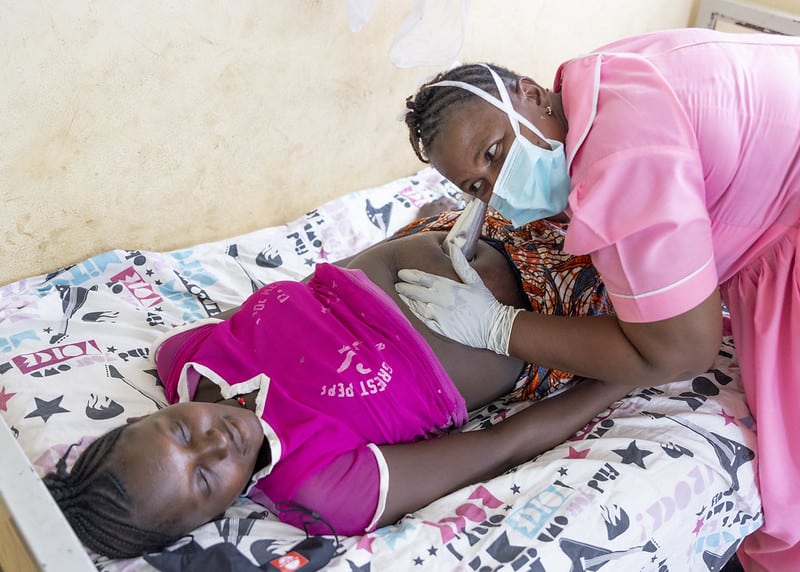The launch of a new program in Benin calls for the expansion of free bednet distribution. Currently, bednets are given to pregnant women and children that complete the immunization schedule as part of the country’s public health services.
The expanded effort is being made possible through a partnership between the Accelerating the Reduction of Malaria Morbidity and Mortality Program (ARM3) at the Johns Hopkins Bloomberg School of Public Health Center for Communication Programs (JHU∙CCP), Coalition des Entreprises Béninoises et Associations Privées Contre le SIDA, la Tuberculose, et le Paludisme (CEBAC-STP) and the National Malaria Control Program. Leading the project is Medical Care Development International (MCDI).
This initiative will distribute 100,000 subsidized bednets to the employees of CEBAC-STP’s private sector companies and their dependents, protecting 40,000 households and 160,000 beneficiaries from the risk of acquiring malaria.
“The program highlights the important role that bednet distribution and use play in preventing malaria. It is important to stress the importance of not only distributing and accessing bednets, but also using them,” explained Guillaume Bakadi Mukenge, Behavior Change Communication Manager for ARM3. “It is critical that we extend these services and reach out to protect as many people as possible.”
To facilitate this expanded effort, ARM3 held an orientation to train over 80 committee health members about the importance of bednets, proper usage and where they can be acquired. Additionally, it produced posters and pamphlets to educate employees about malaria. Over 200 people attended the program launch on March 29, including USAID/Benin Mission Director Kevin Armstrong, ARM3 Chief of Party, Lee Yellot and Minister of Health, Dorothee Akoko Kinde Gazard.
Funded by USAID, ARM3 is led by MCDI and run by a consortium of organizations, including JHU∙CCP, Africare, Medical Care Development International and Management Sciences for Health, with the goal of increasing coverage and use of key life-saving malaria interventions.





